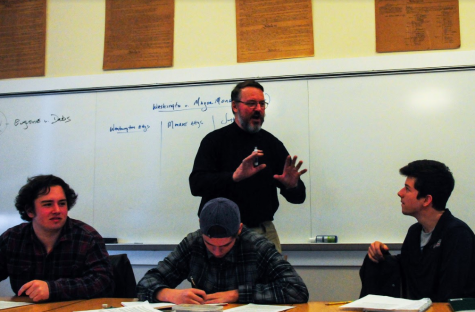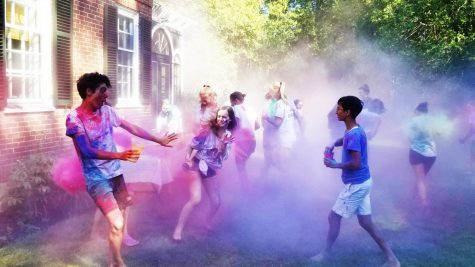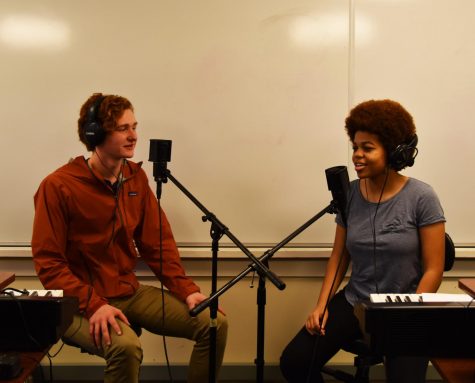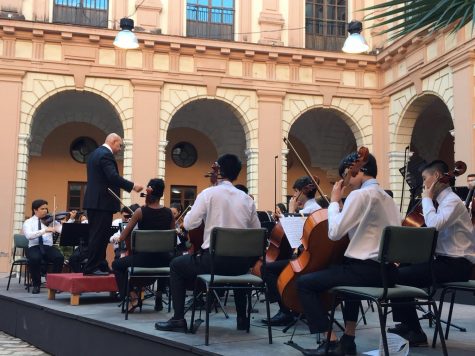A Guide to Spring Classes: Elective Highlights

There are many exciting electives in the spring term, and we find the ones displayed particularly unique. Some electives (such as advanced readings in a modern language) are advanced, term-courses within their given department. The electives below, however, are a few examples of beloved classes that explore new and unique areas of study within their fields.
Cosmology (Mr. Prockop)
Although this is a science elective, this course looks at the history of how mankind tries to understand the world around them. “This all leads up to the study of recent discoveries that compel us to accept some bizarre theories as part of our best, current understanding of the nature of the Universe we inhabit,” said Mr. Prockop. He believes that this class also gives students a broader perspective at a “pivotal time in their lives.”
“What I found unexpected about the course is that something we learned one day about the universe could be proven wrong the next,” said Elizabeth Girian ’20. Through this course, Mr. Prockop encourages students to understand the evidence and reasoning behind various scientific theories (including some bizarre ones), not only the ideas themselves.
American Conservatism 1945-present (Ms. Reichenbach)
This class, as the name suggests, focuses on the evolution of conservative ideas from 1945 to the present. It draws mostly from primary sources written by prominent conservatives. In one interesting assignment, students are asked to write a brief “political autobiography” describing and justifying their political views. But the elective is not only for conservatives. “It’s definitely for everyone!” said Ms. Reichenbach, adding that she would “love to have more people in the class!”
Modern China: Riding the Dragon (Ms. Lamont)
To what extent did Communism affect social, political, and economic structures in China? For some students, this question may transport them back to taking World and the West. But for students who are interested in traditional Chinese society spanning back to the early 17th-century, Ms. Lamont’s Modern China: Riding the Dragon elective will delight them. The course begins by examining the different perceptions Westerners and Chinese have of dragons: “The former has traditionally seen dragons as dangerous, evil creatures, while the latter has traditionally seen dragons as helpful, friendly creatures,” said Ms. Lamont. While many non-Asian students take the course, she also enjoys helping the Chinese students in the class “learn part of their country’s history that has been either purposely hidden from view or distorted for political reasons.”
Art and Archaeology of the Roman Empire (Dr. Reyes)
“Why shouldn’t we just enjoy knowledge without it requiring utility?” asked Dr. Reyes. The notion of gaining knowledge for the joy of knowledge itself is a theme resonant through this elective. First established by Mr. Sackett in 1969, the class is now taught by Dr. Reyes and sometimes by Ms. Martin-Nelson. The class examines artifacts from Rome, but it extends to consider the Roman influences on art in Europe, North Africa, and Egypt. Students will gain a more nuanced understanding of Classical history through the lens of this archaeology elective.
Moby Dick (Mr. Goodrich)
Moby Dick is a pillar of American literature. Yet, why should students read about a sailor’s obsession with killing a white sperm whale? Because Herman Melville’s classic is so much more than just that. Throughout the elective, students will explore notions such as the nature of time and humanity. “Just as it’s nice to sit down to dinner with old pals, it’s restorative to pull a chair up to the table with favorite notions,” said Mr. Goodrich, who has been teaching the course for 18 years. He added that “given that the chemistry of every group is different, [the] collective reading takes different shapes.”







